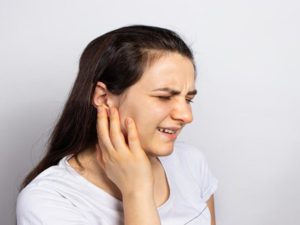
Why Are My Jaw and Ears Hurting After a Car Accident?
The impact of a car accident places a variety of competing and strong forces onto our bodies all at the same time. Even when you are involved in a minor accident that occurs at a low speed, the body can be subject to literal tons of force during the event. You can imagine how this may lead to immediate pain and discomfort, but the effects of this force may start to appear over time in some cases. One area where you may notice problems long after your first trip to the accident doctor is the head and neck, including the jaw and ears. Jaw pain or ear issues like ringing noises or difficulty hearing can indicate severe problems, so it is crucial to understand why this occurs and what to do about it.
Jaw Pain After an Accident
The only part of the skull that can actually move is the jaw, which is also called the mandible. You may think of your jaw as your chin, but it is actually a much larger structure. The hinge of your jaw starts at the cranium, right in front of your outer ear, facilitating complex movement that enables motion and allows you to exert force in order to do things like bite or chew.
The versatility of the jaw also means it is somewhat fragile, especially compared to the rest of the skull. Even minor stress to the jaw can cause a disruption in daily activities such as eating, sleeping, and talking. Problems with the muscles or ligaments surrounding the jaw are known as TMJ disorder, named for the joint that connects the jaw to the rest of your skull. Symptoms of TMJ disorder may include pain at the site of the joint, tenderness in the jaw, difficulty chewing, headaches, pain in the ear or face, and a feeling that your jaw is locked up and immobile.
Some people are prone to TMJ, but it can also occur as a result of a heavy impact on the neck or skull area, like during a car accident. When the head physically strikes a hard surface like a dashboard or window, the jaw is likely to suffer from the impact. Whiplash can also cause TMJ symptoms, and something that seems like a simple sprained joint or broken jaw bone may indicate further brain injuries that require the attention of an accident doctor.
Jaw disorders are unlikely to resolve on their own because the jaw is constantly in use, even when you are sleeping or lying still. Because of this and the potential correlation to brain injuries, an accident doctor should always evaluate jaw pain.
Hearing Disturbances After an Accident
Similar to the jaw, the inner ear is a fragile and complex area of the skull. Force and pressure can cause damage to the ear, as well as changes in air pressure or cabin shape. During a car crash, debris that flies can also cause a blow to the ear, or the general condition may cause pressure that damages the ear canal.
When the ear is injured, you may experience trouble hearing or the feeling that your ear is “clogged” like when you’ve been swimming. You may also notice dizziness, pain, nausea, and a ringing in the ears. These may indicate whiplash, but can also be related to more severe brain injuries. Symptoms like bleeding or fluid discharge from the ears should be seen immediately as they can indicate severe problems of the brain, like a skull fracture, or even spinal injuries.
Why It’s Important To Seek Care For Jaw and Ear Pain
Any injury from a car crash should be evaluated by an accident doctor as soon as possible, especially as many problems will not become evident until after some time, typically once they have worsened. Seeking treatment immediately allows you to identify any dangers to your health quickly and for treatment to begin.
Jaw pain, ear pain, trouble with chewing, ringing in the ears, headaches, or any other issues mentioned above should be brought to the attention of your medical provider as soon as you notice them. If they are not major concerns, you will at least be able to rule out any urgent conditions.
